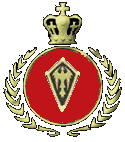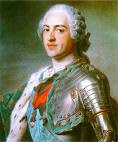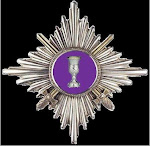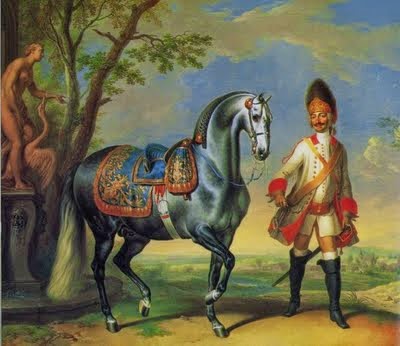Friday, September 23, 2011
Going Dark....
Going on vacation this weekend. The Duchess and I are travelling to Lake Degray near Bismarck AR for a week. We plan on doing nothing, but relaxing at the campsite and enjoying the State Park. We will bring our kayaks, books and of course I'm bringing miniatures to paint. I hope to have a finished Frei Stadt of Bittburg Army to show you upon my return.
Friday, September 9, 2011
The Muster of Saxe-Huack
The 15mm Army of Saxe-Huack. Note the baggage camp behind the command element, it has 2 baggage horses, 1 soldier with a feed bucket, another standing guard. The command element has 4 soldiers, the General on white horse with purple coat, an officer on his left, with a drummer and standard bearer behind them. Two elements of cavalry are on the workbench to be painted with red coats, after that the army will be complete and battle ready. I am considering adding another 4 elements of line infantry but with a different paint scheme, but before I do that I must finish painting the Bittburg army.
click for larger image.

Thursday, September 8, 2011
Royal Army Jaegers
 In just a few short weeks Colonel Prince Albrecht fulfilled his orders to establish a Jaegers Battalion, in fact the Prince went beyond his commission and established a regiment. Two battalions of three companies, with the Crown Prince as their commanding officer. The regiment will be known as the "Prince's Own." Being a former guard officer the Prince chose green jackets with red collars and cuffs for the regiments uniform. Prior to the Prince leaving Berlin, he arranged the purchase of rifles to arm his regiment. Each jaeger is promised a rifle to keep as a reward for service. The Prince is building a small barracks for the regiment at the Royal Army camp in Huack. In normal times only a single battalion shall be on duty at a time, the rest will be placed on half pay and sent home. In times of war both battalions will be available for march. If the Prince has his way, the Jaegers will be the new rapid strike force of the Royal Army. The regimental colors are shown below.
In just a few short weeks Colonel Prince Albrecht fulfilled his orders to establish a Jaegers Battalion, in fact the Prince went beyond his commission and established a regiment. Two battalions of three companies, with the Crown Prince as their commanding officer. The regiment will be known as the "Prince's Own." Being a former guard officer the Prince chose green jackets with red collars and cuffs for the regiments uniform. Prior to the Prince leaving Berlin, he arranged the purchase of rifles to arm his regiment. Each jaeger is promised a rifle to keep as a reward for service. The Prince is building a small barracks for the regiment at the Royal Army camp in Huack. In normal times only a single battalion shall be on duty at a time, the rest will be placed on half pay and sent home. In times of war both battalions will be available for march. If the Prince has his way, the Jaegers will be the new rapid strike force of the Royal Army. The regimental colors are shown below.
Wednesday, September 7, 2011
Crown Prince Returns

After an absence of two years serving in the Prussian Army as an Adjutant to HRH Prince Heinrich, Crown Prince Albrecht von Lettow returned to Fortenbras Palace in the uniform of a Prussian officer having risen to the rank of colonel. Prince Albrecht, whom had already seen combat in the Royal Army of Saxe-Huack as a Captain of Grenadier Guards, was thrust into battle on several occasions during his tour in the Prussian Army. That night the Duke ordered a royal banquet, during which the Crown Prince was promoted to colonel in his father's Royal Army.
After the dinner and an appropriate amount of time spent with family and friends the Crown Prince was summoned to the west wing of Fortenbras Palace which houses the Royal General Staff. Inside the Prince found the Duke, General Bach, Colonel Vorbeck, Captain Stueben, Colonel Kliest and the many other officers waiting for his briefing. Colonel Prince Albrecht gave a detailed report of his experiences in the Prussian Army and was quite eager to suggest the creation of an Jaeger Battalion as the newest addition to the Royal Army. Everyone agreed and the Prince was chosen as it's commander. Thus that night, on paper, the 1st Jaeger Bn was born. The Prince set about filling it's ranks immediately.
Thursday, September 1, 2011
The Huack-Turkoslavia Wars
I have started another imaginations campaign. This one set in the balkans during the late 19th century. You can read about it at my 19th century blog: http://wargamer1972.blogspot.com/
The Frei Stadt of Bittburg
City of Bittburg: After having finally won recognition from the great powers of Europe as a sovereign nation, the Revolutionary Council held elections to form a parliament. The old Margrave's palace was refurbished and was chosen as the home of the National Assembly. At the first session of the National Assembly the Revolutionary Council officially disbanded, although it's members were now elected to the Assembly. The Assembly elected Ludwig Stauffenberg Prime Minister and he assembled his cabinet in the west wing of the Margrave's palace. The Assembly also promoted Albert Brendel to Brigadier General and left the army in his capable hands. A national flag was chosen and is now flown above the National Assembly and in every town and village square.

Frei Stadt of Bittburg
Fearing that the Duke of Saxe-Huack still harbors his claim as their Margrave, the National Assembly voted a tax to fund the army and modernize it. General Brendel was most pleased.
Peace Conference of Furth.
Baron Alexander von Jagow, Prime Minister to Duke Augustus returned from a recent trip to Berlin. While in Prussia the Baron met and dined with Crown Prince Albrecht whom is currently on military assignment in Berlin whom sends his greetings and report to his father the Duke. Before leaving the Prince warned the Baron that trouble was afoot, that the political climate in Berlin was changing.
Baron von Jagow also met with several Prussian ministers whom were most interested in how the "crusade" against Bittburg was proceeding. The Baron informed them of the current situation in Bittburg and of the mandate given the Duke by the Holy See in Rome. The Prussian ministers advised the Baron that the Duke should bring his army home and end the war. The Baron made queries as to why we should do such a thing and it was revealed to him that strong protestant forces inside Prussia and out desired to see Bittburg throw off the shackles of the Catholic church. The Baron nodded his understanding but wanted to put forth his sovereign's claim as the Margrave of Bittburg to the assembled ministers. That they did not question and they seemed favorable towards this disposition and that he should seek his claim, just not on the orders of Rome. As far as they were now concerned, Rome should no longer have any hand in the affairs of state within the Reich.
On hearing his prime minister's words, the Duke retired to his library to contemplate his decision. The next morning the Duke assembled his court and from his golden eagle throne ordered the Royal General Staff to bring the army within the newly drawn borders of Saxe-Huack. That the army should garrison the city of Munchhausen and await there for further instruction. Second that a peace delegation be led by Prime Minister von Jagow accompanied by his staff and a company of Liebstandarte Guards.
The peace settlement plan included two parts. The first that the nature and cause of the current war was that of religious reasons and that for the same reasons should end. To achieve this end if the Revolutionary Council of Bittburg would release the Bishop of Bittburg unharmed, that Saxe-Huack would end all current military operations against Bittburg. That the city of Munchhausen had in it's own accord sworn fealty to the ducal crown and was now a royal estate and no claim should be put forth against it. The second part of the settlement was a demand that the Revolutionary Council recognize Duke Augustus as Margrave of Bittburg, disband, and submit to the Duke's mercy.
The peace conference took place in the village of Furth, midway between Munchhausen and Bittburg. In attendance were the Saxe-Huack delegation, the Revolutionary Council, Colonel von Vorbeck, Colonel Brendel, whom eyed one another with calculating curiosity, and ministers from Prussia, Bavaria and France. While the delegates debated the settlement Colonel von Vorbeck took the time to casually stroll through the village of Furth, paying close attention to the units of the Revolutionary Army that had accompanied their colonel to the peace process and realized that Bittburg now had regular, uniformed line infantry in it's army. He also noticed a pair of their officers discussing the current events in English.
After hours of deliberation the peace settlement was made. The Bishop of Bittburg would be freed and allowed to return to his church and throne in the city, but no longer would he be allowed to meddle in affairs of state. Any attempt by the bishop to raise an army or organize resistance to the revolution would result in the bishop being forcibly exiled from the state and his property forfeit. The City of Munchhausen was now a recognized estate of Saxe-Huack and the Frei Stadt of Bittburg was now officially recognized by Prussia, Bavaria and France. The second part of the peace plan, as expected, was summarily rejected by the ministers of Bittburg.
Subscribe to:
Comments (Atom)





















